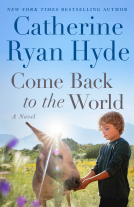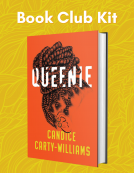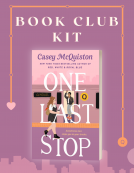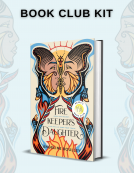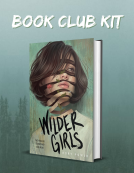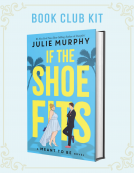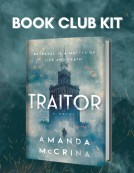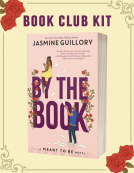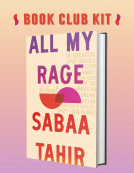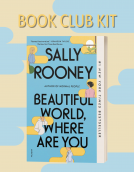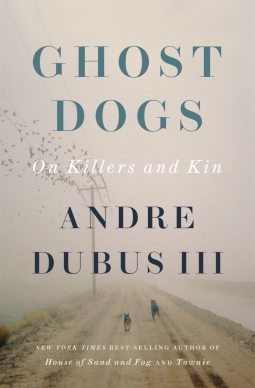
Ghost Dogs
On Killers and Kin
by Andre Dubus III
This title was previously available on NetGalley and is now archived.
Send NetGalley books directly to your Kindle or Kindle app
1
To read on a Kindle or Kindle app, please add kindle@netgalley.com as an approved email address to receive files in your Amazon account. Click here for step-by-step instructions.
2
Also find your Kindle email address within your Amazon account, and enter it here.
Pub Date 5 Mar 2024 | Archive Date 29 Feb 2024
Talking about this book? Use #GhostDogs #NetGalley. More hashtag tips!
Description
Essays from the literary master and bestselling author of Townie on a life of challenges, contradictions, and fulfillments
During childhood summers in Louisiana, Andre’s grandfather taught him that men’s work is hard. Ever after, whether tracking down a drug lord in Mexico as a bounty hunter or grappling with privilege while living with a rich girlfriend in New York City, Andre worked—at being a better worker and a better human being. In his longest essay, “If I Owned a Gun,” he reflects on the empowerment and shame he felt in keeping a gun, and his decision, ultimately, to give it up. Elsewhere, he writes of violent youth and of settled domesticity and fatherhood; about the omnipresent expectations and contradictions of masculinity; about the things writers remember and those they forget. In conversation with writers and thinkers from Rilke to Rumi to Tim O’Brien, Ghost Dogs renders moments of personal revelation with emotional generosity and stylistic grace, ultimately standing as essential witness and testimony to the art of nonfiction.
About the Author: Andre Dubus III is the author of Such Kindness and 8 other books, including the bestsellers Townie, a memoir, and House of Sand and Fog, a National Book Award Finalist in Fiction and an Oprah's Book Club selection.
Advance Praise
"Dubus's very pleasing idea of an essay is to tell something that happened to him -- rather than conscripting lived life into a 'subject.' He writes of suddenly having big money and not knowing quite how to cope with that; about loving his long-divorced parents; about growing up poor but somehow out-lasting it; and about not loving his dog as much as he worries he's supposed to. Here is very human life cloaked often in transporting mystery, for which Dubus possesses a rare and empathetic brilliance." - Richard Ford
Available Editions
| EDITION | Hardcover |
| ISBN | 9781324000440 |
| PRICE | US$28.99 (USD) |
| PAGES | 272 |
Available on NetGalley
Average rating from 10 members
Featured Reviews
 Andrew S, Reviewer
Andrew S, Reviewer
Townie, published in 2011, is possibly the most haunting memoir I’ve read. It tells of the author’s tough upbringing in rough New England towns and how his violent past eventually shaped him into the man he now is. This books builds on Townie, it’s a series of essays – more often than not born out of memories of events in his life or related to people he was, or still is, close to – in which Dubus reflects his past and attempts to draw learning from it. Andre is the son of the renowned short story writer of the same name and first cousin to renowned novelist James Lee Burke (who he doesn’t mention here and possibly has had little contact with, their families having lived far apart from each other). So there is writing in his blood, so to speak, but he says here that although he's always enjoyed words and has always written, for a very long time he didn’t consider himself a writer.
For most of his early life, in fact right up to the time House of Sand and Fog, his third book, became a success he'd earned no real money from his endeavours. By the time money did start to come in he was in his forties and hadn’t owned a house or even ever lived in a house that wasn’t rented. to this point his income had primarily come from his work as a carpenter and a night-time barman as well as his wife’s earnings as a dancer and a dance instructor.
He talks of his relationship with his father, who’d left his mother quite early in his life but who’d stayed in touch and remained close through to his death. Around the time of his fiftieth birthday, his father lost a leg following a motor accident, he’d been mowed down on an interstate highway after he stopped to assist at the scene of an accident. He battled pain and depression for the remainder of his life. A really touching anecdote recalls the time Andre took his dad to an award ceremony where he met his fellow acclaimed short story writer Raymond Carver for the first and only time. Carver was to die shortly after this meeting.
Another reminiscence tells of the time when he’d just met the lady who was to become his wife and he took her up the roof of the New York Marriott Marquis hotel, in Times Square (coincidentally the hotel I stayed in during my only visit to the city). They looked down at the lights, the cars and the tiny people below – a scene I can vividly recall from the floor to ceiling window of my room, more than forty floors up. The length of the stories – because stories is how they felt to me – varied considerably: some were barely a page or two in length whilst others, such as his rumination on his history with guns and his concluding desire to have nothing more to do with them, being of almost novella length.
There’s a sense of jeopardy in just about every piece, and though some are sad others are unbelievably powerful in their messages of love and hope. A letter to his sons on the subject of love made me pause for an hour or more, so struck was I by it that I simply needed time to reflect, to clarify my thoughts and to attempt to rank myself on the pecking order of familial love. I’d call it all emotionally draining, but that feels like it contains a negative connotation and I really have no negative thoughts about this book. It’s full of honesty, humbleness and clearly articulated feelings about how things, and above all people, have impacted him through his life, and also what lessons he’s drawn from this.
This is a deeply personal book. Some might find it somewhat self-ingulgent but certainly not, I believe, self-aggrandising. At heart I think the author is simply a man who loves his family, acknowledges his weaknesses and strives to be a better person. I guess we can all take something from that.
Readers who liked this book also liked:
We Are Bookish
Literary Fiction, Multicultural Interest, Women's Fiction
We Are Bookish
Mystery & Thrillers, OwnVoices, Teens & YA
We Are Bookish
Biographies & Memoirs, Nonfiction (Adult), Parenting, Families, Relationships
We Are Bookish
Multicultural Interest, Mystery & Thrillers, Teens & YA
We Are Bookish
Arts & Photography, Health, Mind & Body, OwnVoices
We Are Bookish
General Fiction (Adult), Romance, Women's Fiction
We Are Bookish
Historical Fiction, Mystery & Thrillers, Teens & YA
We Are Bookish
Business, Leadership, Finance, Nonfiction (Adult), Self-Help
We Are Bookish
General Fiction (Adult), Romance, Women's Fiction
We Are Bookish
Multicultural Interest, OwnVoices, Teens & YA
We Are Bookish
General Fiction (Adult), Literary Fiction, Women's Fiction
